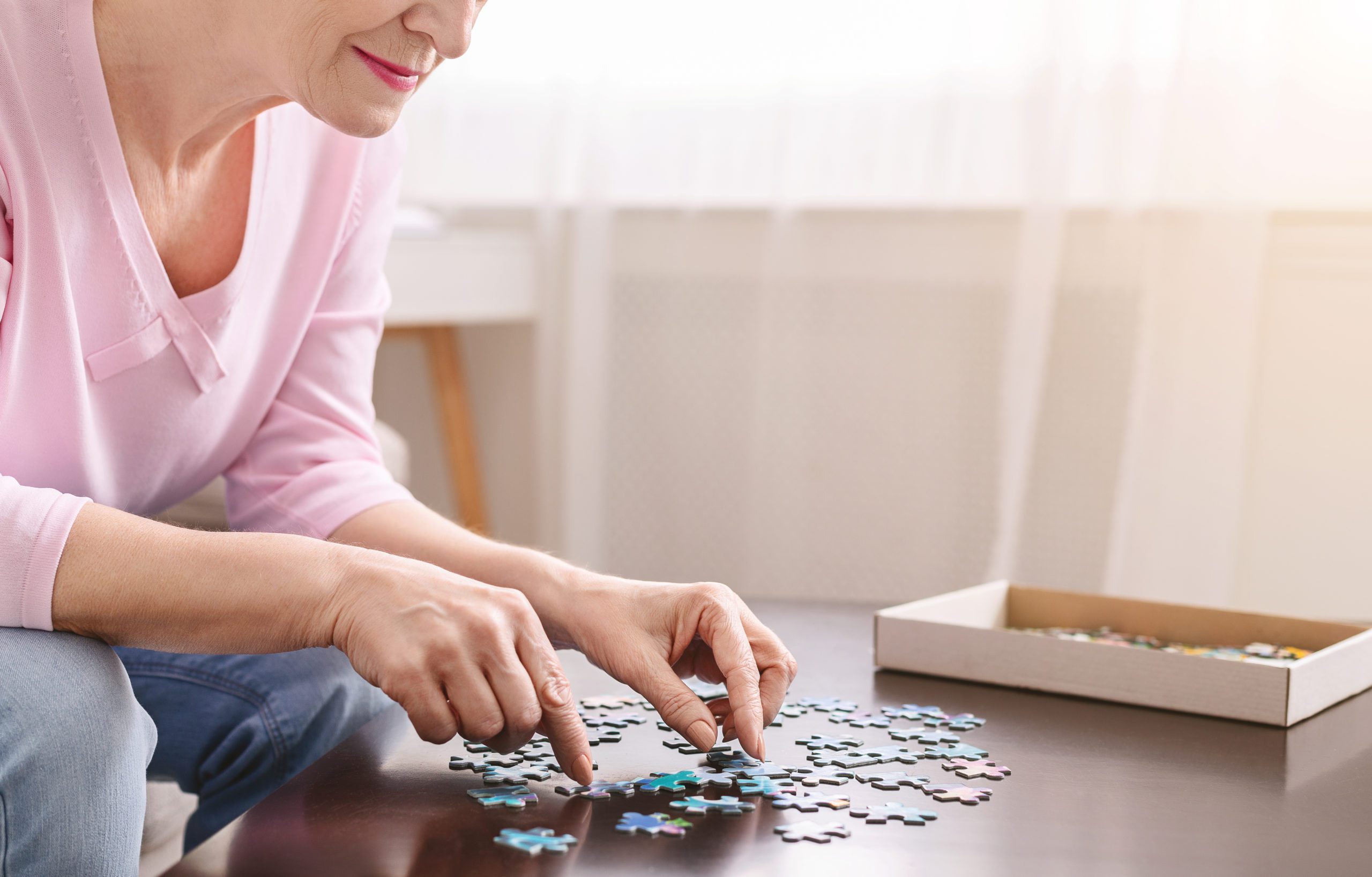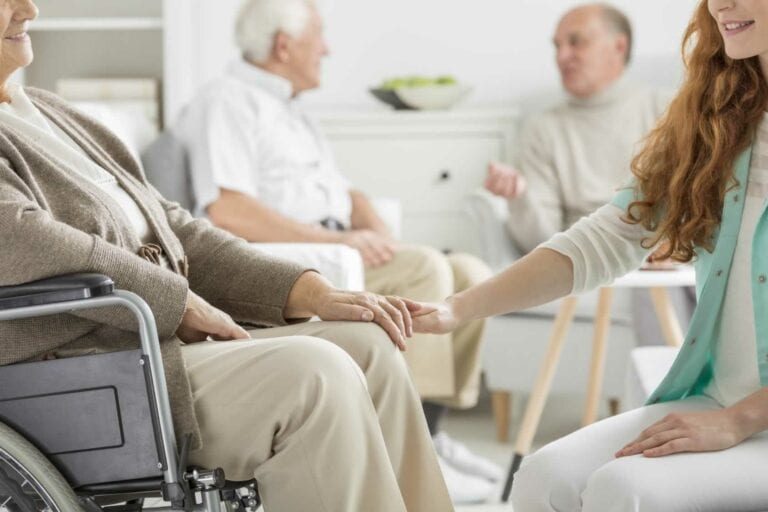
More attention and discussion has been given to mental health in recent years. Due to these positive changes, many of us have become more comfortable talking openly about mental health issues, seeking out treatments and therapies for ourselves and those we care about and for others.
As we grow older, our mental health wants also change. We have a new phase in life that can often bring with it its own trials and challenges, making us feel burdened, stressed, and at times helpless. More than one in five older people have mental health concerns severe enough to need help. Many elderly people require assistance and support to cope. Support is always available. It can make a world of difference to attain the right type of medical assistance at the right time in hopes of ensuring future comfort.
Older people experience stress on a regular basis
People over the age of 65 are challenged with a variety of different problems that can develop into stressors. They usually adjust to these changes by engaging their sense of self and of community resources to maintain their well-being. A person’s ability to deal successfully with the challenges of aging depends on their ability to cope, their ability to receive social support, and their ability to maintain independence.
- Body Problems:
As we grow older, we suffer wear and tear on our bodies. Stress could cause us to experience serious physical health problems such as heart disease, stroke, Alzheimer’s disease, and so on, which could be sources of stress.
- Losses:
Another hardship of growing older is that we experience more loss as the years go by. Losing close friends and family members is painful for everyone. Other losses include loss of parents, siblings, friends, and what they taught us as children.
Social isolation:
People who are elderly often isolate themselves because of lifestyle and health changes, health problems, low energy levels, and the inability to get out and interact with other people. Outings become less frequent, gatherings fewer and farther between. This can lead to isolation and adverse effects on mental health.
- Change in living arrangements:
Many older people prefer to live independently, however their health is deteriorating, so they are forced to move in with their children. Several elderly adults feel robbed of their environment, routine, and independence because of this change in status in their family.
- Financial stressors:
Experiencing unexpected circumstances such as hospitalization or illness can be financially stressful to the elderly. For elderly without pension, it could be even more difficult. Family relationships and changing circumstances are also possible barriers to adjusting.
- Lack of activity:
Physical and mental wellbeing is likely to improve with mental and physical exercise. But for many elderly people, there isn’t much to do once they retire. Not challenging your mind can lead to mental decline.
Promoting mental health and wellbeing
Your mental and physical health, as well as your psychological wellbeing, must both be prioritized. Our mental wellbeing influences our physical wellbeing and vice versa.
Maintaining a healthy mental state is quite simple:
- Eat Well:
The best way to look after your mental health is to eat healthy foods such as whole grains, fruits, vegetables, and pulses. The sugar rush given by sweet foods leads to feelings of exhaustion and depression when the rush subsides. When you eat healthier foods, you will not experience a sugar rush.
- Get Enough Sleep:
With age, our sleep needs change and we must sleep longer to get adequate rest. Older adults don’t sleep as deeply as younger individuals do. A good night’s sleep is good for concentration, memory formation, and restoring any cell damage. It is also a great way to rejuvenate your immune system.
3) Practicing regularly:
The positive outcome of exercise is that it improves mood and emotional well-being. Consequently, mental health issues are reduced as well. On top of that, it also improves overall physical health.
4) Preserving Relationships:
Relationships are the main ingredient of psychological well-being. They are often referred to as the most important factor for people to be happy and to flourish. We need our relationships to provide us with support in times of need, whether family, friends, colleagues or neighbors. Relationships help us cope with stressors and also provide a support system when we need it most. A proven method of de-stressing is sharing our feelings with others.
5) Take out time for pleasant and soothing activities:
A neglected aspect of our culture is the importance of hobbies. Hobbies can provide contentment and satisfaction in a variety of ways, whether it be a sport, an art class, gardening, etc. We often find ourselves with an abundance of free time as we grow older, and finding such activities to engage in can help make our lonely days enjoyable.
6) Spirituality or faith:
People, especially the elderly, are increasingly turning to religion as they get older. This can also be an opportunity for socialisation and interaction since satang’s and pujas are organized for the community’s use. People who are religiously devoted experience better health and improved wellbeing.
7) Use Technology to Stay in Touch:
Keeping in touch with friends and family can be a common routine for an elderly person, especially when their children live away or in another country. Staying on Facebook can also help prevent social isolation for elders, who cannot physically see or communicate with those around them.
8) Build flow:
An individual getting lost in an activity that he or she is truly passionate about feels so fulfilled that he or she can spend hours on end pursuing it. Flow is a state of relaxation or awareness that can be achieved through any activity and can be achieved through badminton, gardening, painting, and chess.
9) Develop gratitude:
A well-established way to boost positivity and happiness is to express gratitude. We can do this by keeping track of all the things that make us feel grateful and thankful for. The first step is finding something small in everyday life that can be felt grateful for. This can be done by keeping a gratitude journal, or a gratitude jar, so that it is easy to keep a record of what makes you happy every day.
10) Give to others:
The feeling of fulfillment that comes from performing small acts of kindness can help us deal with the negative feelings we have about ourselves and to become contented. Engaging in the community will give you the satisfaction of giving to causes you believe in or volunteering at an NGO. However, volunteering will offer you more than just a service to society.
11) Go Back to School:
The brain ages as we age, and staying mentally challenged is essential. With retirement, we also have time to give ourselves a break from our hectic life by taking up something that is new to us. It might be a new computer class, a language, pottery, etc. that keeps us busy and stimulated.







